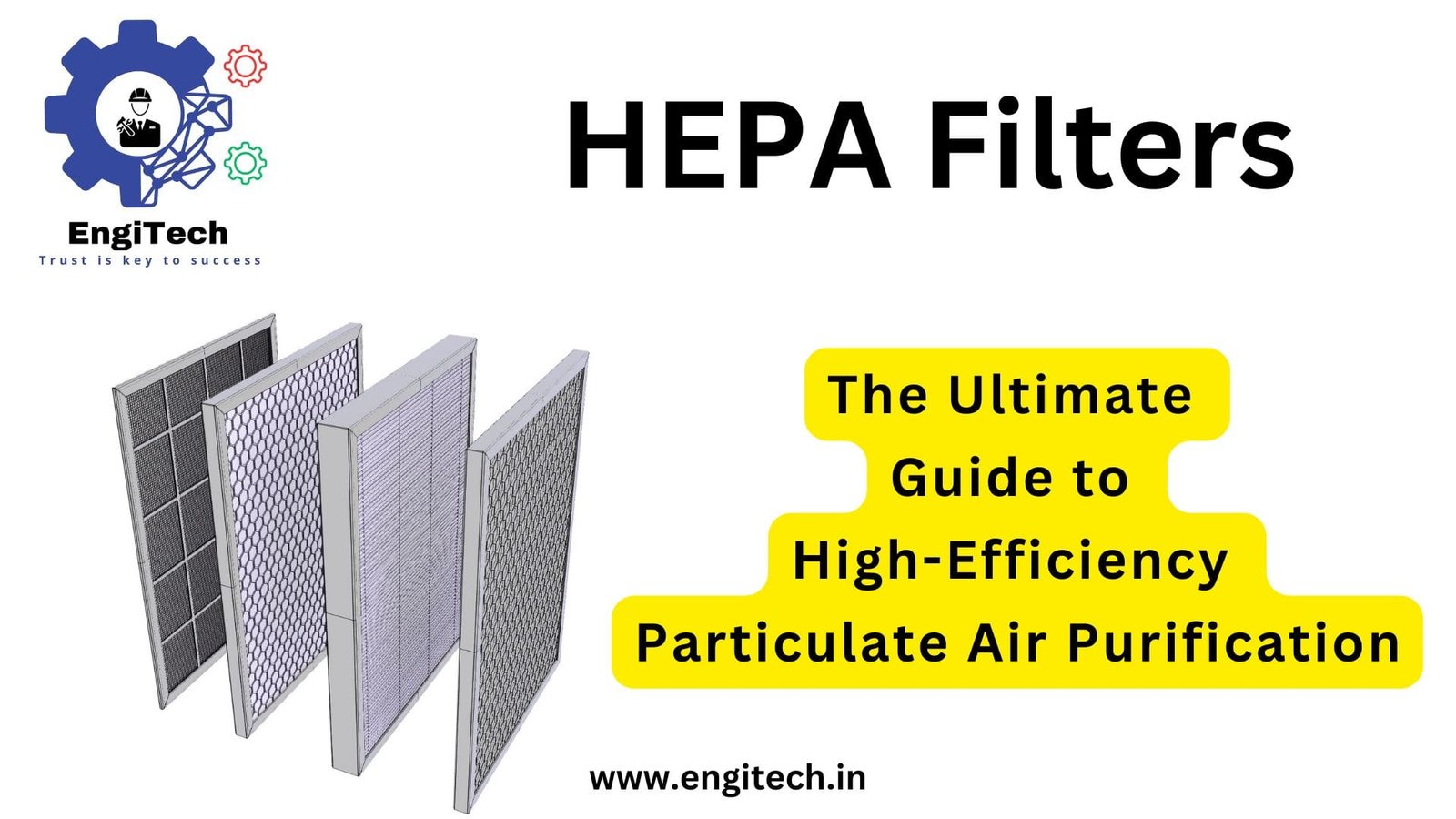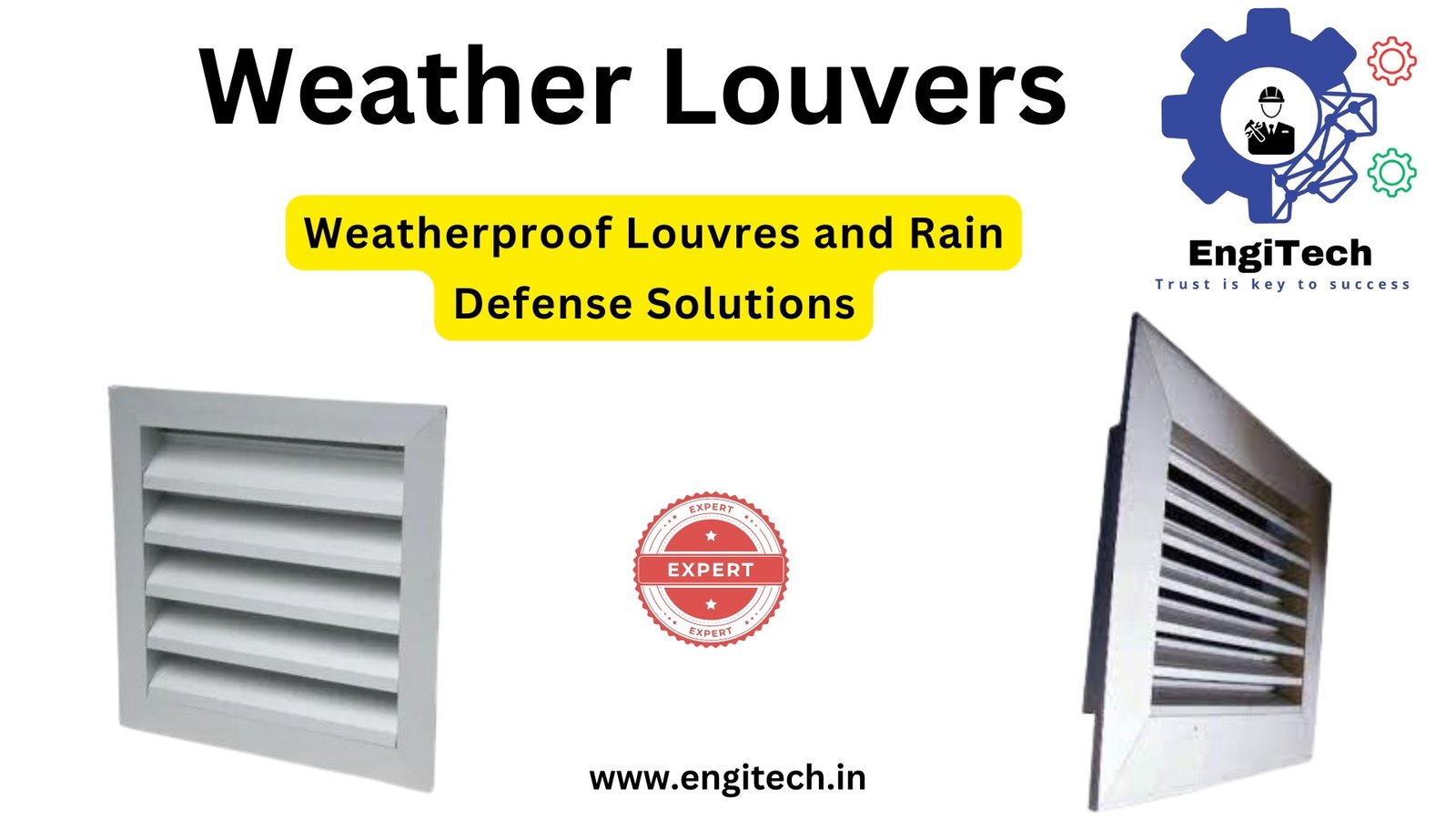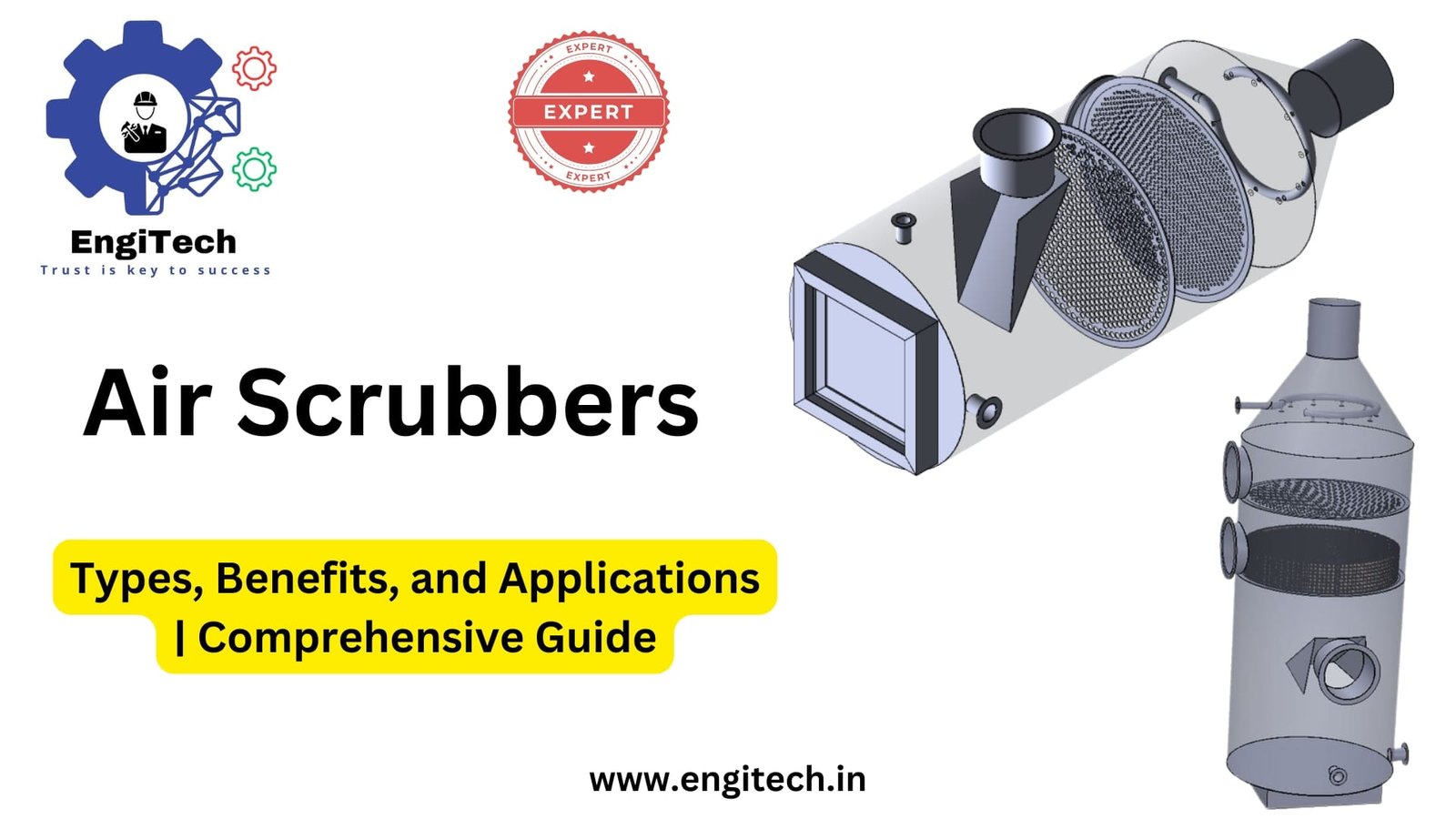HEPA Filters: How High-Efficiency Particulate Air Filters Work and Why You Need Them

In an era where air quality is increasingly compromised by pollutants, allergens, and even airborne viruses, clean air has become a priority for homes, offices, hospitals, and other indoor environments. One of the most effective tools for achieving better indoor air quality is the HEPA filter, also known as the High-Efficiency Particulate Air filter. These filters have been a gold standard for air purification due to their ability to capture incredibly small particles and provide cleaner, healthier air.
In this comprehensive guide, we will explore everything you need to know about HEPA filters—how they work, their different types, where they are used, and why they are essential. Additionally, we will discuss how to choose the right HEPA air purifier, how to maintain it, and how these filters play a significant role in combating COVID-19 and other airborne diseases. By the end of this guide, you’ll have a full understanding of why HEPA filters are one of the best investments for air purification.
Table of Contents
What Is a HEPA Filter?
A HEPA filter, or High-Efficiency Particulate Air filter, is a specialized air filter that is engineered to remove 99.97% of particles as small as 0.3 microns. These particles include allergens, dust, pollen, pet dander, mold spores, and even certain types of bacteria and viruses. Given that one micron is one-millionth of a meter, this means HEPA filters are extremely effective at capturing even the tiniest pollutants.
HEPA filters were originally developed in the 1940s during World War II to prevent the spread of radioactive contaminants. Over the years, their use has expanded beyond military applications to homes, hospitals, airplanes, and industries. The key to their effectiveness lies in the fine mesh of fibers that trap particles as air passes through.
How Do HEPA Filters Work?
To understand the power of HEPA filters, it’s essential to know how they trap particles. Unlike ordinary filters that rely primarily on sieving, HEPA filters use a combination of three distinct mechanisms to capture particles:
- Direct Impaction: Large particles, such as dust and pollen, collide directly with the filter fibers and are captured.
- Interception: Smaller particles that follow the airflow paths are intercepted by the filter fibers and adhere to them.
- Diffusion: Very fine particles (like those found in smoke) are diffused by air molecules, causing them to move erratically and eventually get trapped in the fibers.
Each of these mechanisms works together to ensure the HEPA filter can capture a wide range of airborne contaminants, from large dust particles to microscopic pollutants.
Key Features of HEPA Filters
- Multi-layer filtration: HEPA filters usually consist of multiple layers of fine, randomly arranged fibers that work together to capture particles.
- Efficiency at 0.3 microns: While they are incredibly effective at filtering particles of all sizes, HEPA filters are specifically rated to trap 99.97% of 0.3-micron particles, which are considered the most difficult to filter.
- Non-toxic: HEPA filters do not release harmful byproducts into the air, unlike some other filtration methods (such as ionizers or ozone generators).
Types of HEPA Filters
There are several variations of HEPA filters, each designed for specific uses. Here’s an in-depth look at the main types of HEPA filters available:
1. True HEPA Filters
These are the filters that meet the strict standard of capturing 99.97% of particles 0.3 microns in diameter. True HEPA filters are used in everything from home air purifiers to industrial clean rooms and medical environments.
2. HEPA-Type Filters
HEPA-type filters do not meet the rigorous standards of True HEPA filters. While they are capable of capturing 85-90% of airborne particles, they are not as efficient. These are often found in cheaper air purifiers, but they are not ideal if you’re seeking the highest level of air purification.
3. Activated Carbon HEPA Filters
These filters combine the effectiveness of a True HEPA filter with an activated carbon layer. This additional layer helps remove odors, smoke, and gases from the air, making these filters ideal for use in homes with smokers or kitchens where odors are a concern.
4. Medical-Grade HEPA Filters
Medical-grade HEPA filters are designed for use in healthcare settings. They have even stricter filtration standards and are often paired with other technologies to prevent the spread of airborne pathogens like viruses and bacteria. These are commonly used in hospitals, clinics, and laboratories.
5. Washable HEPA Filters
Some HEPA filters are washable and reusable, making them more eco-friendly and cost-effective. However, they may not always maintain the same level of efficiency after repeated washing.
Applications of HEPA Filters
HEPA filters are incredibly versatile and are used in a wide variety of settings. From residential air purifiers to industrial and healthcare environments, here are some of the most common applications of HEPA filters:
1. Residential Air Purifiers
Many people rely on HEPA air purifiers to improve the air quality in their homes, especially in areas where allergens like pollen, pet dander, and dust mites are a concern. HEPA filters are particularly helpful for individuals who suffer from asthma, allergies, or respiratory issues. In homes with pets or smokers, these filters can make a noticeable difference in air quality.
2. Healthcare Settings
In hospitals and clinics, HEPA filters are used to maintain sterile environments by filtering out airborne pathogens such as bacteria and viruses. They are commonly found in operating rooms, isolation rooms, and even HVAC systems to ensure clean air circulation in critical areas.
3. Industrial Use
Industries that generate a lot of dust, chemical fumes, or other airborne contaminants use HEPA filters to protect workers from inhaling harmful substances. These filters are used in everything from manufacturing plants to laboratories where precise air filtration is necessary.
4. Aircraft and Automotive
Airplanes use HEPA filters to clean the air in the cabin, ensuring that passengers are breathing in cleaner, safer air during flights. Some luxury automobiles are also equipped with HEPA filters to enhance air quality inside the vehicle.
5. Clean Rooms
Clean rooms used in pharmaceutical, electronics, and biotechnology industries must maintain extremely low levels of airborne particles to prevent contamination. HEPA filters are essential in these environments to ensure particle-free air.
Why Are HEPA Filters Important?
HEPA filters are critical for improving indoor air quality and reducing exposure to harmful airborne particles. Whether you’re looking to remove allergens, protect against viruses, or reduce industrial pollution, HEPA filters are one of the most effective solutions available.
Key Benefits of HEPA Filters:
- Allergen Removal: HEPA filters are extremely effective at trapping allergens like pollen, pet dander, and dust mites, helping to reduce allergy symptoms.
- Improved Indoor Air Quality: In homes, offices, and public buildings, HEPA filters can significantly reduce the level of airborne contaminants, providing a healthier indoor environment.
- Protection Against Airborne Diseases: In healthcare settings, HEPA filters play a vital role in preventing the spread of airborne diseases by trapping pathogens like bacteria and viruses.
- Smoke and Odor Removal: When combined with activated carbon, HEPA filters can also remove smoke, chemical fumes, and unpleasant odors from the air.
Choosing the Right HEPA Air Purifier
When selecting a HEPA air purifier, it’s essential to consider several factors to ensure you get the best performance and value for your investment. Here’s a step-by-step guide to help you choose the right HEPA air purifier for your needs:
1. Room Size
The size of the room where you plan to use the air purifier is one of the most important factors. Most HEPA air purifiers are rated for specific room sizes, typically measured in square feet. Ensure that the purifier you choose can handle the square footage of the room for optimal performance. Larger rooms will require air purifiers with higher clean air delivery rate (CADR) ratings.
2. Air Changes Per Hour (ACH)
The ACH rating refers to how many times the air purifier can filter the room’s air in an hour. A higher ACH rating indicates better air purification. For example, a purifier with an ACH rating of 4 means it can clean the air in a room four times per hour, which is ideal for people with allergies or asthma.
3. Filter Replacement Costs
While HEPA filters are highly effective, they do require regular replacement to maintain their efficiency. Some air purifiers come with washable filters, while others require new filters every few months. Check the replacement frequency and cost before purchasing, as this can significantly impact the overall cost of the air purifier.
4. Additional Features
Many modern HEPA air purifiers come with additional features such as activated carbon filters, UV-C light sterilization, or ionizers. Carbon filters are great for removing odors, while UV-C lights help kill bacteria and viruses. Make sure to choose a purifier that includes the features most important for your specific needs.
5. Noise Levels
Noise can be a concern if you plan to use the air purifier in a bedroom or office. Some HEPA air purifiers are designed to operate quietly, while others may produce more noise at higher fan speeds. Always check the decibel rating if noise is a consideration.
Maintenance Tips for HEPA Filters
To ensure your HEPA filter operates efficiently and lasts as long as possible, it’s important to follow a few maintenance tips:
1. Regular Filter Replacement
Most HEPA filters are not washable and need to be replaced after a certain period, typically every 6 to 12 months, depending on usage and the environment. Always follow the manufacturer’s recommendations for filter replacement to maintain optimal air purification.
2. Pre-Filters
Some HEPA air purifiers come with a pre-filter that traps larger particles like dust and hair. Cleaning or replacing this pre-filter regularly will help extend the life of the HEPA filter.
3. Vacuuming the Unit
While HEPA filters themselves are not washable, the outer parts of your air purifier can accumulate dust and dirt. Vacuum the intake vents and the exterior of the purifier regularly to prevent dust buildup and ensure optimal airflow.
4. Monitor Air Quality Indicators
Many advanced air purifiers come with air quality sensors that measure the concentration of particles in the air. These sensors can indicate when the HEPA filter needs to be replaced. Pay attention to these indicators for timely maintenance.
5. Placement of the Air Purifier
For optimal performance, place your air purifier in a central location within the room. Ensure it has enough space around it for air to circulate freely. Avoid placing it in corners or behind furniture, as this can restrict airflow and reduce its effectiveness.
HEPA Filters and COVID-19
With the spread of airborne diseases like COVID-19, the use of HEPA filters has become even more critical in healthcare settings, businesses, and homes. While no air purifier can fully eliminate the risk of COVID-19 transmission, HEPA filters can significantly reduce the amount of airborne viral particles, thereby lowering the risk of infection in enclosed spaces.
1. How HEPA Filters Help
COVID-19 primarily spreads through respiratory droplets, but smaller particles (often called aerosols) can remain in the air for hours in enclosed spaces. HEPA filters can trap these aerosols, reducing the concentration of the virus in the air. Studies have shown that HEPA filters can capture particles down to 0.01 microns, smaller than the typical size of a coronavirus particle, which ranges from 0.06 to 0.14 microns.
2. Limitations of HEPA Filters
While HEPA filters are highly effective at capturing airborne particles, they are not a standalone solution for preventing the spread of COVID-19. Other preventative measures, such as proper ventilation, mask-wearing, and social distancing, should also be followed. In addition, HEPA filters are only effective in the rooms where they are used. For full protection, air filtration should be part of a broader strategy for infection control.
3. Where HEPA Filters Are Used for COVID-19
- Hospitals and Clinics: Medical facilities use medical-grade HEPA filters in air purifiers and HVAC systems to reduce airborne transmission of viruses.
- Offices and Workplaces: Many businesses have invested in HEPA air purifiers to create safer working environments, especially in spaces where social distancing is challenging.
- Schools and Public Buildings: Some schools and public buildings have integrated HEPA filters into their ventilation systems to provide cleaner air for students, staff, and visitors.
Frequently Asked Questions
1. How often should I replace a HEPA filter?
The frequency of filter replacement depends on the manufacturer’s guidelines and the environment in which the air purifier is used. In most cases, HEPA filters should be replaced every 6 to 12 months. However, in environments with high levels of dust, pet dander, or smoke, more frequent replacement may be necessary.
2. Can I wash a HEPA filter?
Most True HEPA filters are not washable and must be replaced when they become clogged. However, some air purifiers come with washable prefilters, which can be cleaned to extend the life of the HEPA filter. Always check the manufacturer’s instructions before attempting to wash any part of the air purifier.
3. Are HEPA filters effective against mold?
Yes, HEPA filters are highly effective at capturing mold spores. However, it’s important to remember that HEPA filters only trap the spores and do not kill mold. To prevent mold growth, the source of moisture in the room should be addressed, and any existing mold should be professionally removed.
4. Do HEPA filters remove odors?
Standard HEPA filters are designed to capture particles, not gases, which means they may not be effective at removing odors. However, some air purifiers combine HEPA filters with activated carbon filters, which can help remove odors from smoke, cooking, and pets.
5. Do all air purifiers have HEPA filters?
No, not all air purifiers come with HEPA filters. Some use other types of filtration, such as ionic or UV light. When purchasing an air purifier, it’s essential to check that it includes a True HEPA filter if you want the highest level of particle filtration.
Conclusion
HEPA filters are an essential component in the battle for cleaner air, providing protection against allergens, pollutants, and even certain viruses. Whether you’re looking to improve the air quality in your home, office, or industrial environment, a HEPA air purifier can help you breathe easier and live healthier. From reducing asthma and allergy symptoms to safeguarding against airborne diseases like COVID-19, HEPA filters offer a versatile and highly effective solution.
When choosing a HEPA air purifier, remember to consider factors such as room size, filter replacement costs, and noise levels to ensure you get the best performance. And with regular maintenance, your HEPA filter will continue to provide you with clean, fresh air for years to come.
By investing in a high-quality HEPA air purifier, you’re not just buying a machine—you’re investing in your health and well-being. Make sure to choose a purifier that fits your needs, follow proper maintenance protocols, and enjoy the benefits of breathing cleaner, purer air.
Are you ready to improve the air quality in your home or workplace? Explore our comprehensive range of industrial and residential HEPA air purifiers on EngiTech and stay updated on the latest innovations in air filtration technology. Don’t wait—breathe easier and take control of your environment today!


